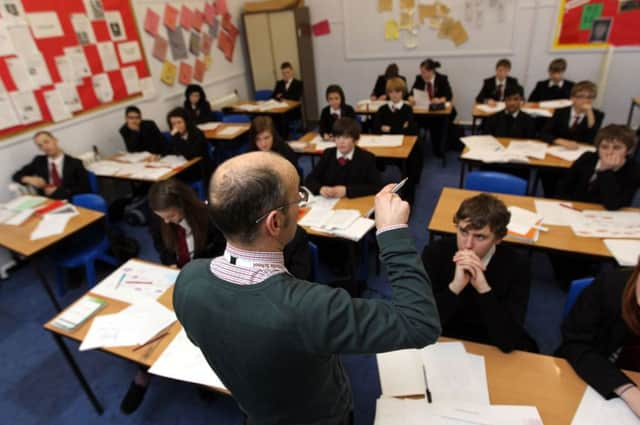Grammars look to give poorer pupils priority


New figures show that these schools – which select pupils based on academic ability – are changing their admissions arrangements for next year, in a bid to increase the numbers of youngsters admitted who are from disadvantaged homes.
The move comes amid Government proposals, first announced by Theresa May last year, to allow grammar schools to expand, and new ones to open.
Advertisement
Hide AdAdvertisement
Hide AdThe Prime Minister has said the policy will help to create a place at a good school for every child and argued that many children’s school choices are determined by where they live or their parents’ wealth.
According to an analysis by the Times Educational Supplement (TES), of the 138 existing grammar schools in England that have published their admissions arrangements for the 2018/19 academic year, 50 (36 per cent) have made changes to increase the number of disadvantaged children – giving poorer pupils some priority for the first time, or further relaxing entry requirements for these students.
A further 49 have kept their priority for poorer pupils the same as 2017/18, and 39 have given no priority to disadvantaged children. Overall, it means that in 2018/19, almost three in four will give some degree of priority to poorer youngsters, the TES reported.
The majority of grammars did not take into account whether a child is eligible for free school meals – a key measure of poverty – or whether they get pupil premium funding (money that follows poorer pupils throughout their school career) in their admissions policies for youngsters starting this September (2017/18), it added.
Advertisement
Hide AdAdvertisement
Hide AdOne admissions officer at a grammar school told the TES that their school is making a change to prioritise pupil premium children from next year in response to the Government’s agenda.
“We have to be seen to be incorporating it,” the officer said.
But another said that they began developing plans to improve poorer pupils numbers before Mrs May became Prime Minister.
Selective schools have two options for admitting more disadvantaged pupils, it was suggested – changing their policy on the marks needed on entrance exams for certain groups, such as poorer youngsters, or altering their over-subscription rules for pupils who pass the tests, to give priority to particular children.
Advertisement
Hide AdAdvertisement
Hide AdMinisters have said that they want new grammars to be more inclusive, with fair access for youngsters from all backgrounds.
Education Secretary Justine Greening said: “We’re talking about a new model of how grammar schools can work and how selection can work that really does mean that we’ve got an education system that caters for very different talents and potential of different children.”